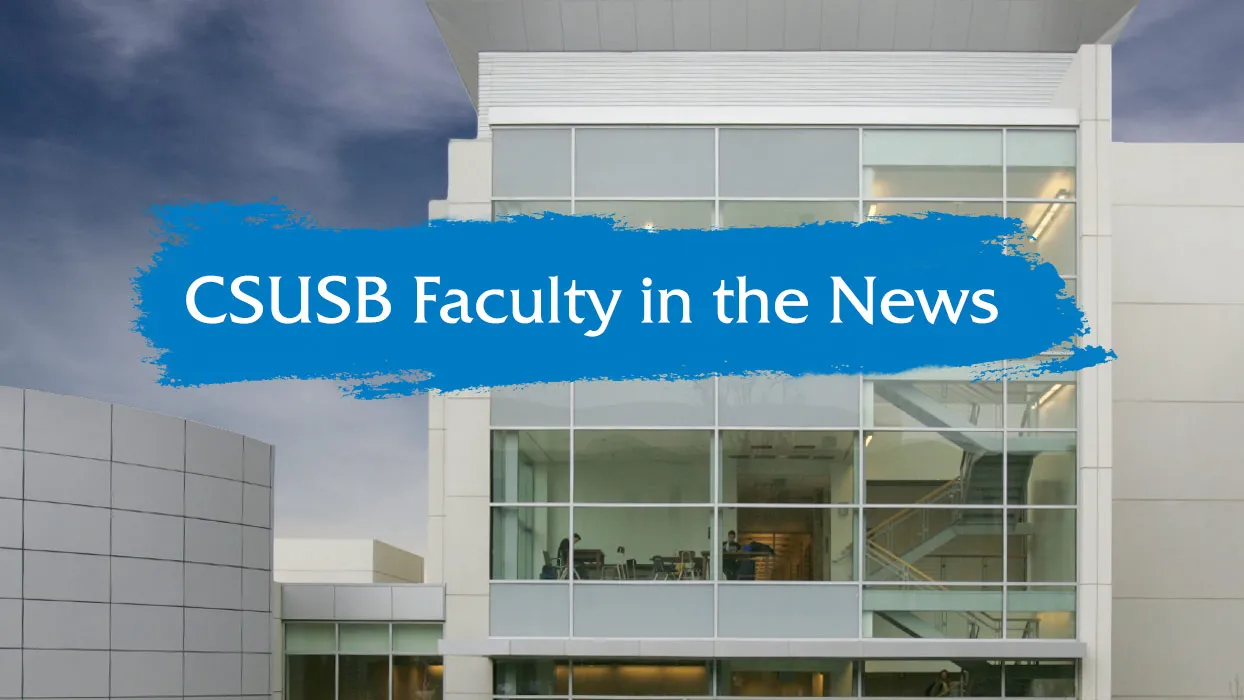NOTE: Faculty, if you are interviewed and quoted by news media, or if your work has been cited, and you have an online link to the article or video, please let us know. Contact us at news@csusb.edu.
Terri Ann Burch: Department of Nursing chair and professor, CSUSB
The Sun City Insider
Dec. 18, 2022
The newspaper published a feature on Terri Ann Burch, CSUSB Department of Nursing chair and professor: “Dr. Terri Ann Burch believes if a door opens, walk through it. It’s a mantra she’s been following since she was a little girl; thankful she was fortunate to be part a privileged community in Chicago and now able to give back to others.”
CSUSB professor discusses increase in antisemitic hate crimes
Axios
Dec. 21, 2022
Brian Levin, director of CSUSB’s Center for the Study of Hate and Extremism, was interviewed on the podcast Axios Today, where he discussed the rise in hate crimes against the Jewish community.
“I think that there are antisemitic attitudes that extend across a cultural and ideological spectrum,” he said. “We're seeing folks draw in stereotypes and conspiracy theories across that spectrum.”
CSUSB professor comments on increase of hate crimes in Wisconsin
Wisconsin Public Radio
Dec. 22, 2022
The number of hate crimes reported in Wisconsin grew by 54 percent in 2021, according to new data from the FBI. The increase comes despite a significant drop in law enforcement agencies reporting hate crime data.
An FBI press release states the number of law enforcement agencies reporting nationwide decreased significantly due to departments transitioning to a new reporting system.
"While the number of agencies actually participating declined, those agencies that do participate are generally showing increases," said California State University, San Bernardino professor of criminal justice, Brian Levin.
Levin, who also directs the Center for the Study of Hate and Extremism, said hate crime numbers have gone up, in part, because of increased reporting by victims.
"The other thing, though, that I think is more important is that we're an angrier society and we're more fragmented and divided, and that's reflected in our sociopolitical milieu," Levin said.
Levin also said social media has "supercharged" the trend by amplifying bigotry and aggression and serving as a repository "that can be sparked at any time."
Levin said Wisconsin was an early leader in prosecuting hate crimes when in 1993 the U.S. Supreme Court ruled that enhanced penalties for hate crimes charged against a Kenosha man did not violate the defendant's First Amendment right to free speech.
Levin also serves as a board member for the Wisconsin-based advocacy group We Are Many-United Against Hate, which is working to create a bipartisan commission that would inform state government about hate crime research and hold community forums with representatives from different community groups in the state.
These news clips and others may be viewed at “In the Headlines.”
